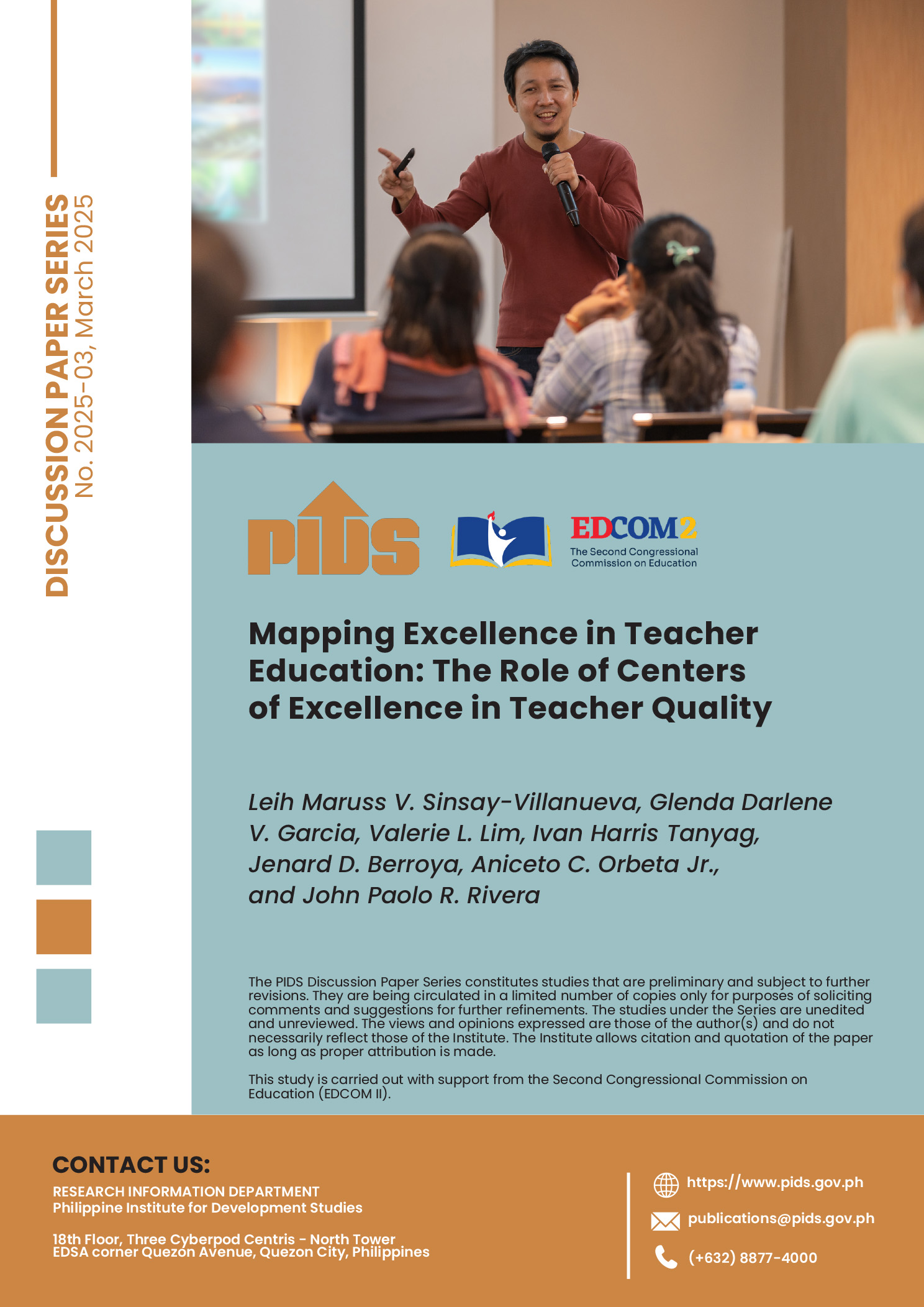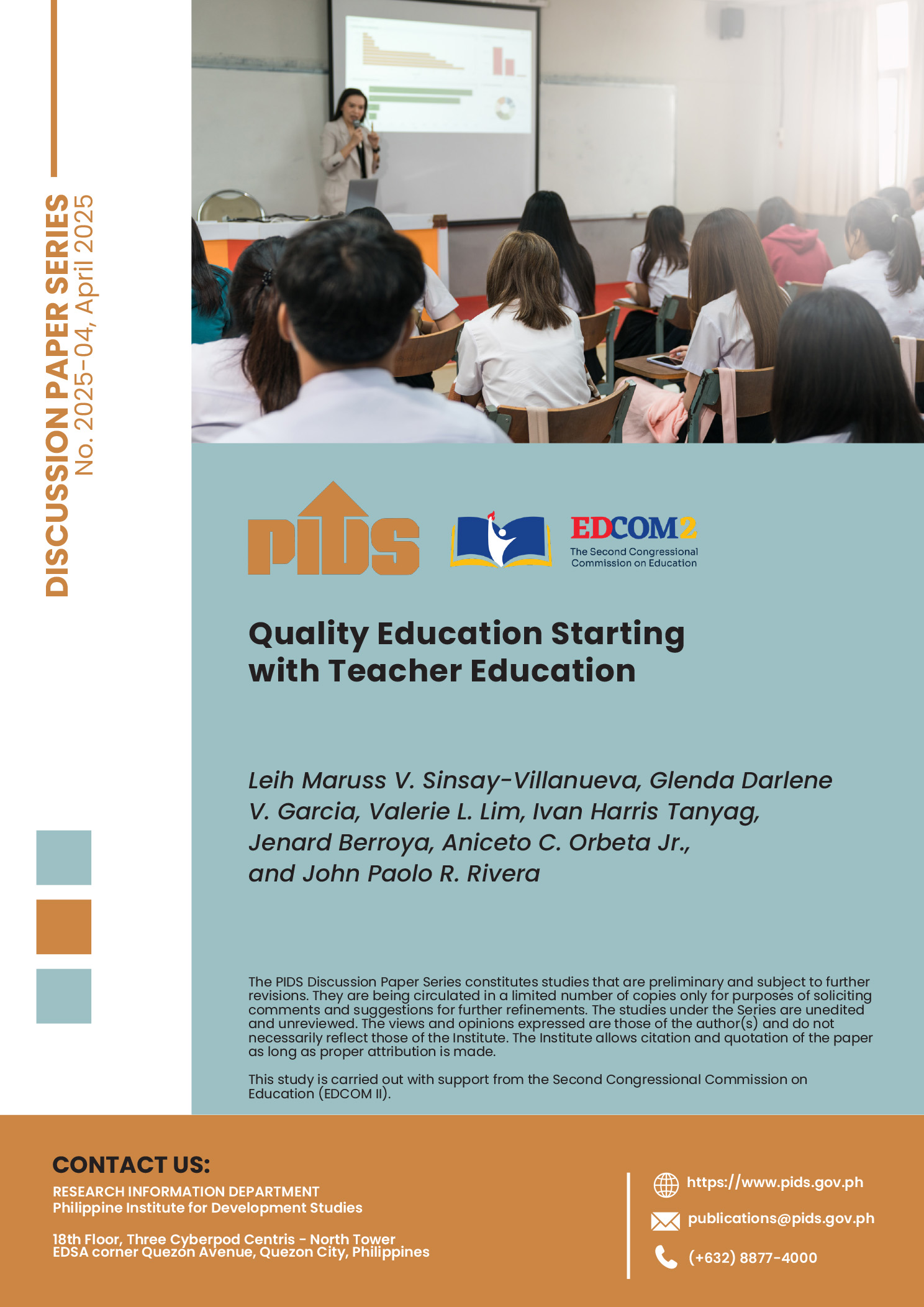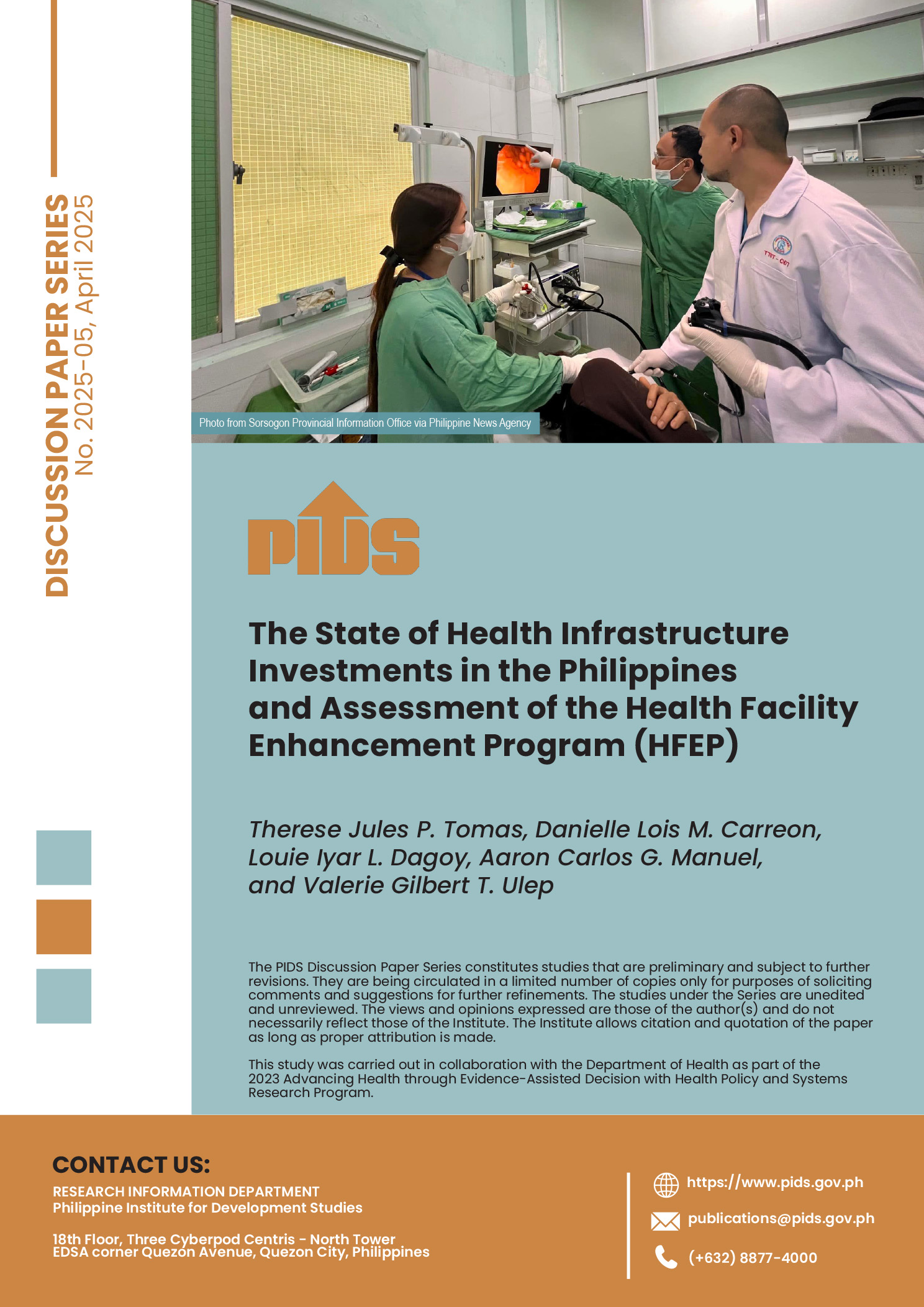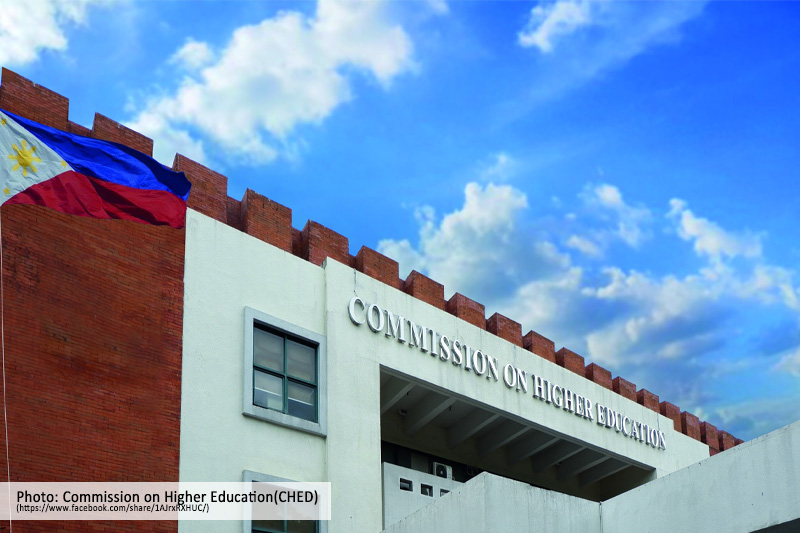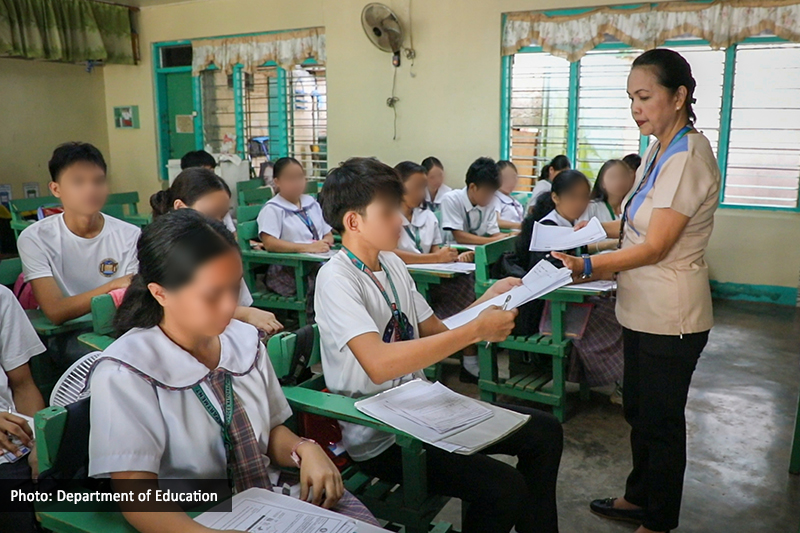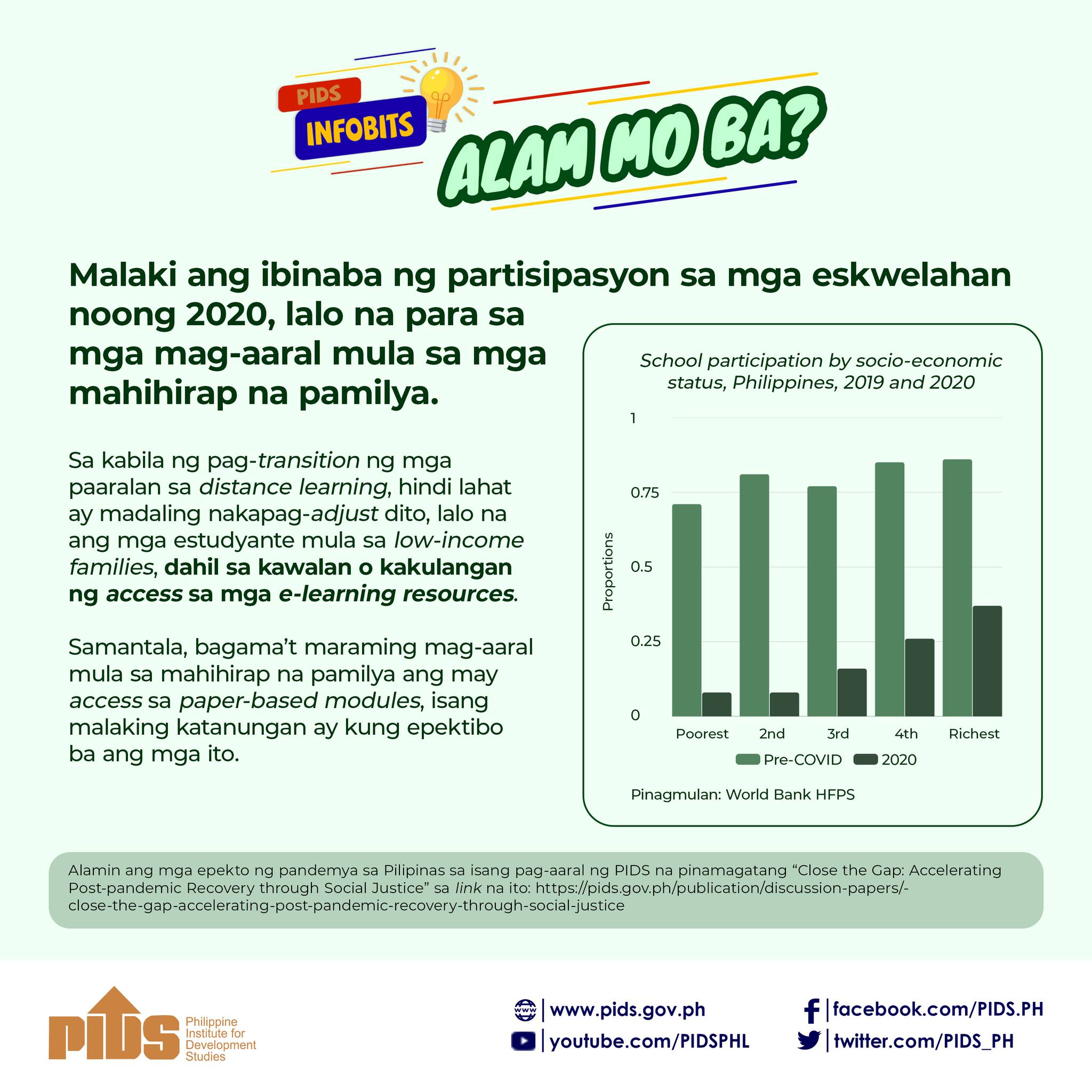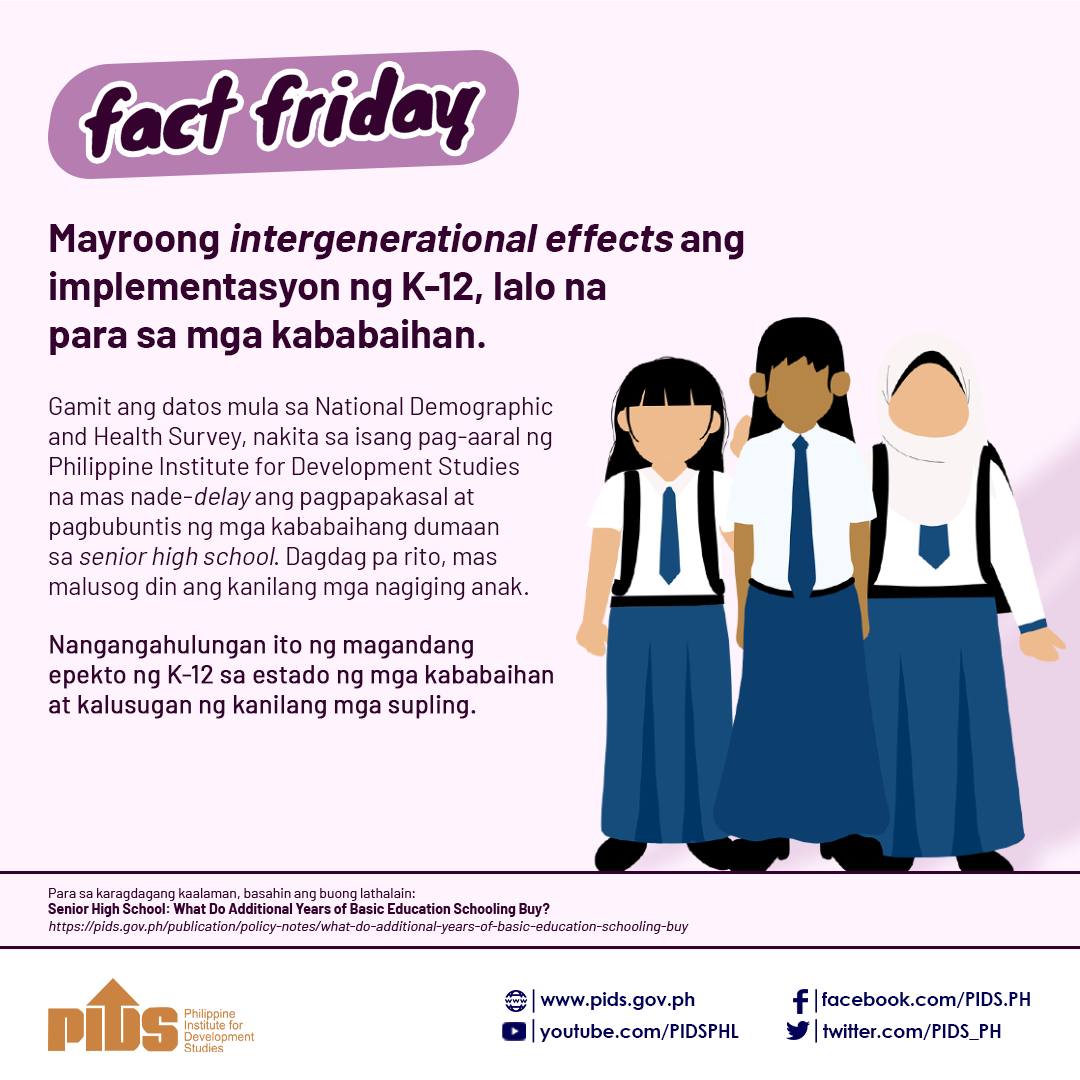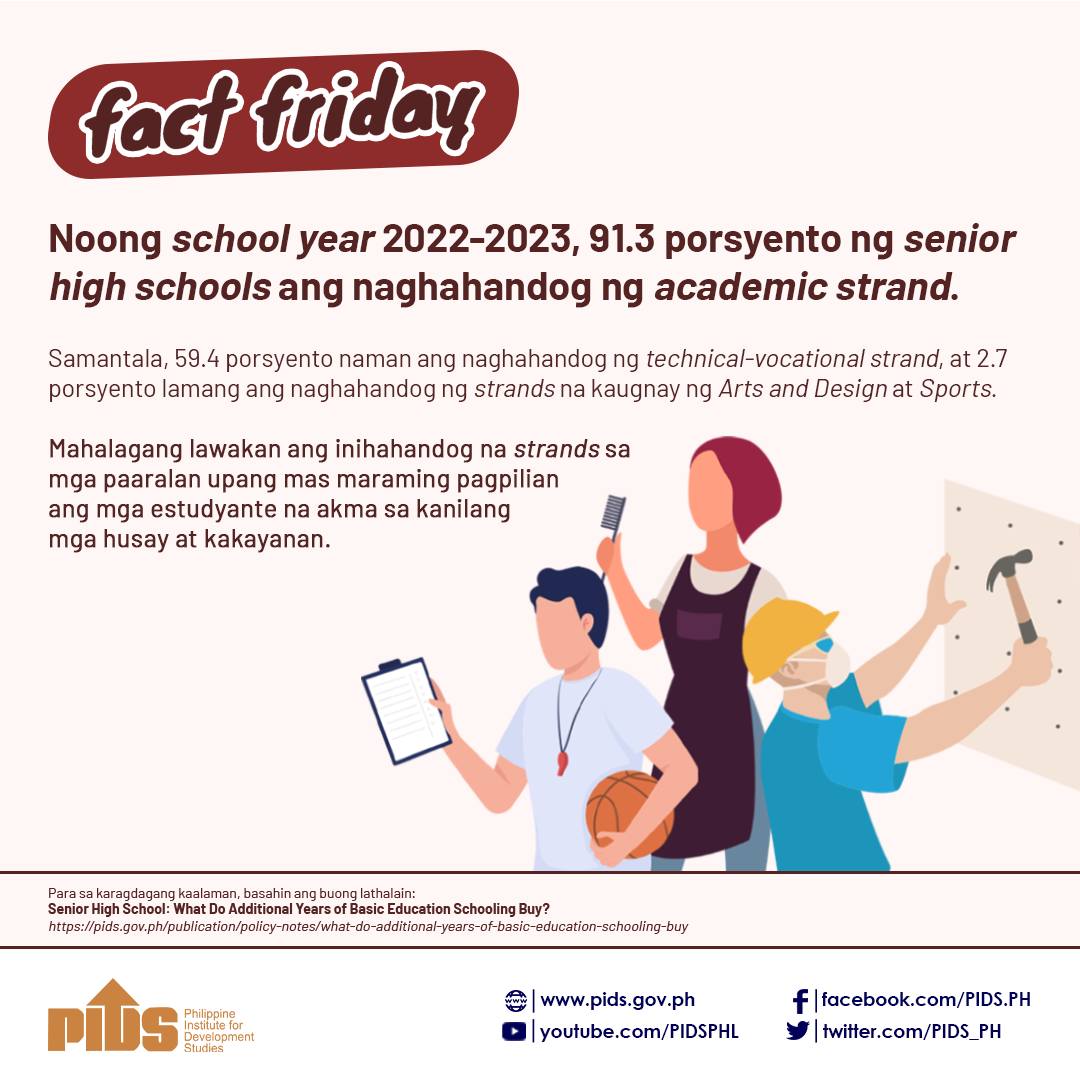The Constitution mandates that the “State shall protect and promote the right of all citizens to quality education at all levels, and shall take appropriate steps to make such education accessible to all.” The framers of the 1987 Philippine Constitution know that our people are the country’s most precious productive assets. The quality of our labor force determines the amount of capital flows that can lead to economic prosperity. Poor labor quality discourages capital from flowing into the country, which means that poverty will persist.
The Program for International Student Assessment is a worldwide study launched by the Organization for Economic Cooperation and Development to evaluate educational systems by measuring 15-year-old students’ scholastic performance on mathematics, science, and reading. In the 2018 PISA, the Philippines ranked last among 79 participating countries in reading, and second to last in science and mathematics. At least 78 percent of our students failed to reach minimum levels of proficiency in each of the three subjects.
Reducing the student-classroom ratio and instituting remedial programs for lagging students are crucial steps in improving the quality of the country’s education, according to a government think tank. But this will require more investments, even in Metro Manila, said a Policy Note by Philippine Institute for Development Studies (PIDS) Senior Research Fellow Michael R.M. Abrigo and President Aniceto C. Orbeta Jr. (Read, “Lower student-classroom ratio, remedials for laggards are crucial education reforms,” in the BusinessMirror, July 10, 2023).
Abrigo and Orbeta said in Metro Manila, there are 48 students per classroom, while in Bangsamoro Autonomous Region in Muslim Mindanao, there are 54 students in a classroom. The government’s target is to bring down these numbers to 40 students per classroom. “Despite prioritizing education in the government budget, the country’s public education spending remains below its Southeast Asian peers. In a recent analysis, countries that performed poorly in the recent PISA, such as the Philippines, have invested relatively less in schooling per person,” the authors said.
“A promising intervention used in other countries is ‘teaching at the right level,’ which recognizes differences in student abilities and learning stages and provides appropriate interventions specific to the student’s current learning levels. Such interventions have been proven to be both effective and scalable,” they said.
They also recommended greater private school participation in the DepEd’s Education Service Contracting for junior high school, the Senior High School Voucher Program, and the Joint Delivery Voucher Program for Technical-Vocational-Livelihood Specialization. By expanding these programs, Abrigo and Orbeta said the government would be able to tap on a “cost-effective way of addressing several extant issues on education access and quality.”
Vice President and Education Secretary Sara Duterte early this year presented the DepEd’s Basic Education Report 2023. “Filipino learners are not academically proficient. Oftentimes, our learners experience emotional abuse and exhaustion. Some learners suffer from psychological fatigue,” she told an audience that included President Ferdinand Marcos Jr. She said the PISA 2018 results “are distressing as it is alarming for me as a mother and as DepEd secretary.” While she is confident that “we can do better than this,” Duterte underscored the PISA’s importance. “Studies like these are opportunities for us to thoroughly examine our system and the defects that hurt our children’s abilities,” she said.
Duterte unveiled her “MATATAG” agenda, which is the DepEd’s roadmap in addressing challenges in the basic education sector. “This will accelerate the delivery of basic education services and provision of facilities, and give support for teachers to teach better.” The Food and Agriculture Organization is the UN agency that leads international efforts to defeat hunger. It said children’s learning outcomes suffer when they regularly experience hunger. Food insecurity affects concentration, memory, mood, and motor skills, all of which a child needs to be successful in school.
A Social Weather Stations (SWS) survey showed that in September 2020, 31 percent of Filipino families experienced hunger in the past 30 days, and 9 percent were suffering from severe hunger. In 2021, 13.1 percent or 2.9 million Filipino children were estimated to be hungry.
Education will shape tomorrow’s world. It would do well for the government not only to address the challenges in the basic education sector but also to solve the problem of hunger and malnutrition among Filipino schoolchildren. Hungry children cannot perform well in school, and poor education outcomes lead to a decline in productivity that will hamper the long-term growth potential of the country.

